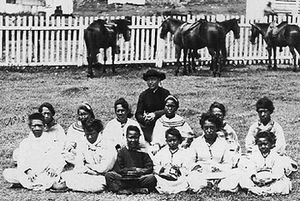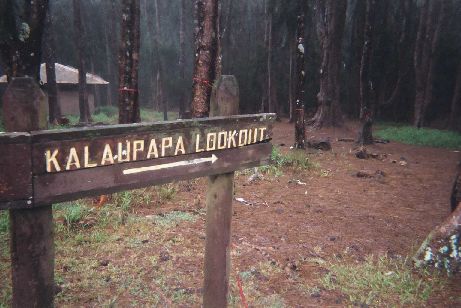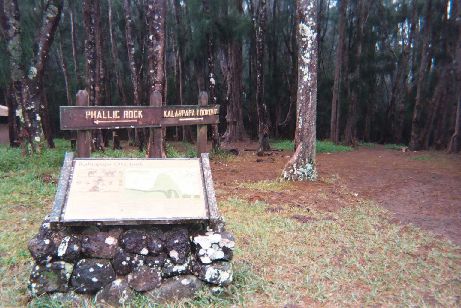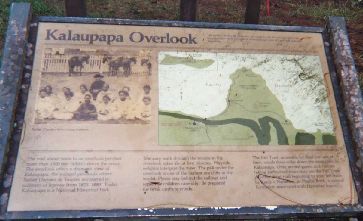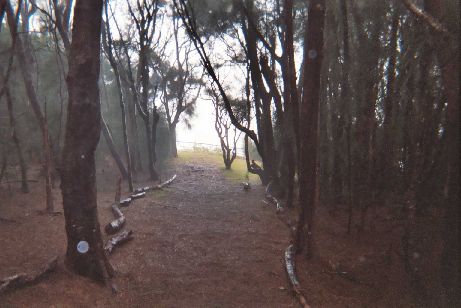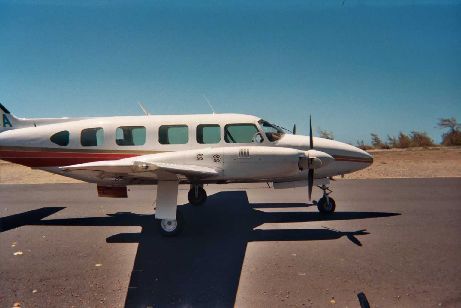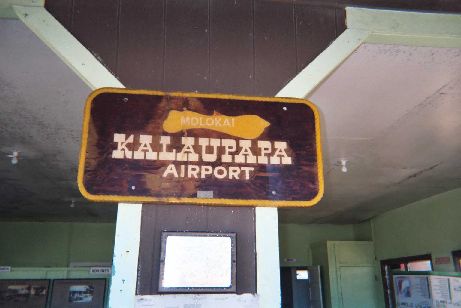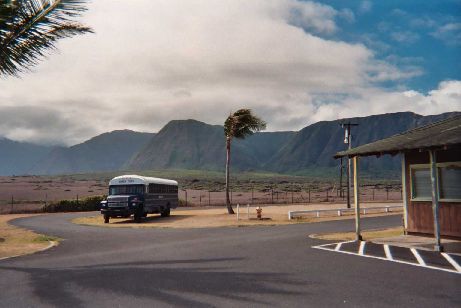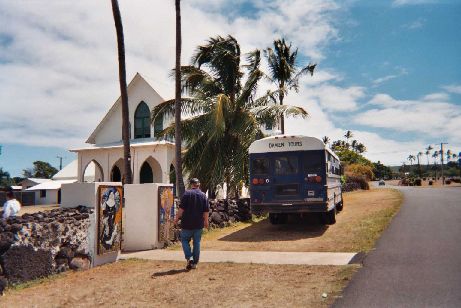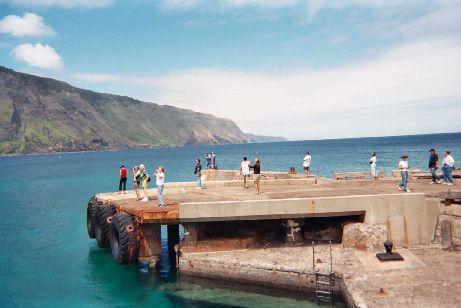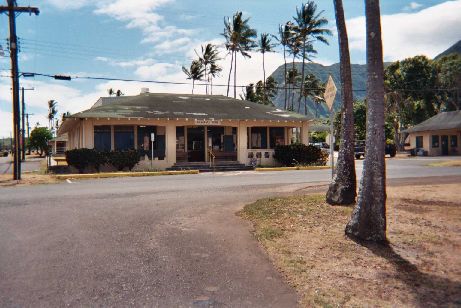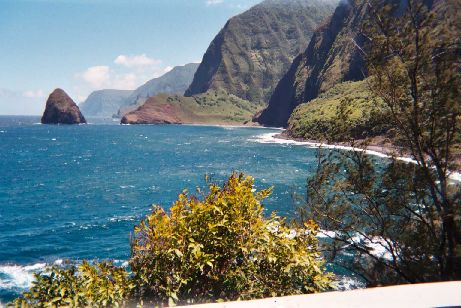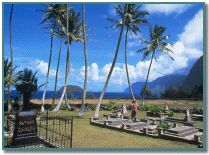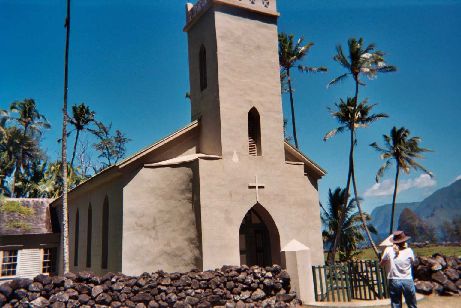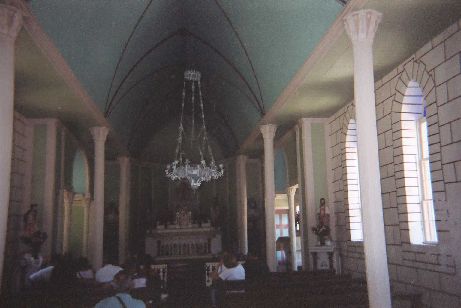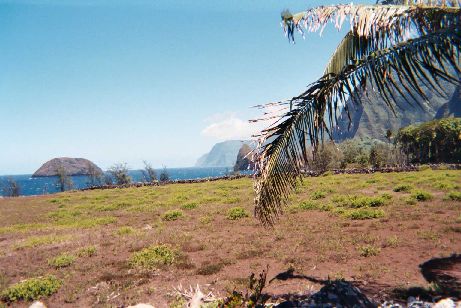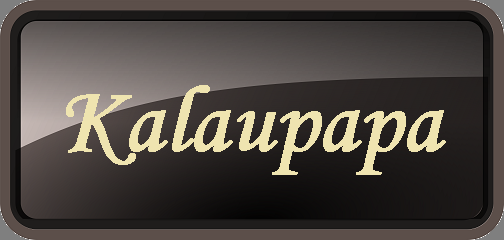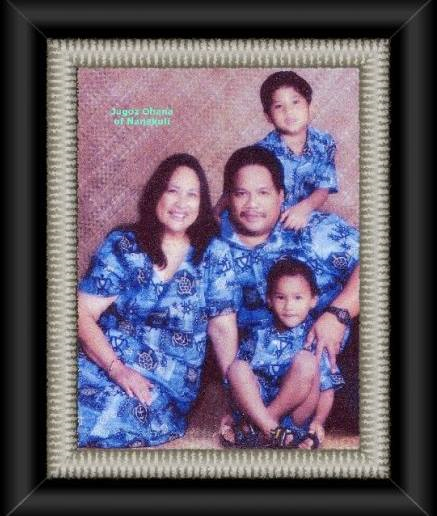Kalaupapa, Molokai Translation: The flat leaf (Pukui/Elbert) 
|
|
It is not known when or precisely how leprosy arrived in the Hawaiian Islands, but it was detected as early as the 1830s. Leprosy cut across all populations in the islands, but Hawaiians were particularly vulnerable to introduced disease,
having no immunities. By the mid-nineteenth century, the Hawaiian people suffered death and disfigurement at alarming rates. People afflicted with leprosy usually had short life spans, falling victim to other opportunistic diseases.
|
|
"Moloka'i on my Mind" - Blayne Asing |
|
Paradigm Shift "A new outlook"
In 2004 I visited Kalaupapa via Damien Guided Tours, it was an unforgettable experience. For most others in the tour group they were there for history of Kalaupapa. For myself, it was more an emotional tour, I had traced several family members who
had been exiled there, due to contracting Hansens desease. Ohana, both paternal & maternal subjected to enormous adversity, were condemned to live the rest of their lives, and eventually died there.
If you would like to visit Kalaupapa, you can fly in, ride the mules, or hike down. The main park purpose is to protect the lifestyle, and individual privacy of the patients, so there are several restrictions for all visitors at Kalaupapa, permission is required prior to your visit. Sadly, Richard Marks the former Sheriff/Tour Guide of Kalaupapa passed away on December 9, 2008. ~ Kona ~ |
|
Remembering Ohana @ Kalaupapa
 Alakiki 3rd Great Grandfather 1850 - 1887 Nani Nohua Ha'i Great Grand Aunt 1886 - 1928 Josephine Kaaiakala 2nd Great Grandmother 1873 - 1921 Alice Kalaionahonopi'ilani Makekau Great Grand Aunt 1888 - 1923  |
|
Geography The Kalaupapa peninsula is divided into three sections, the eastern coast is called 'Kalawao'. The center of the peninsula is a volcanic crater called 'Makanalua'. The western coast is known as 'Kalaupapa', one english translation is "The Flat Leaf". The peninsula extends north from the Island of Molokai, the napali overlooking Kalaupapa are among the highest in the world.
|
Kalae Lookout
More than 1500 ft. above Kalaupapa is Kalae lookout, it's an awesome view of Molokai's northern coast.
|
West side |
Kalawao - East side
Before the arrival of Father Damien Kalawao was the original site of the colony. In the late 1800's ships would sail between the islands. Sometimes captains feared the disease so much they ordered their crews to throw the Lepers over the side. If the leper survived the swim to shore, those already there would beat them to take their valuables. The survivors would then be forced to live in caves, or build makeshift tents on the shore. |


Kona Jugoz's Profile | Create Your Badge

OHANA OF BERNARD HOOPII & ELIZABETH HAUPU
|
|
Mahalo for visiting
The Koa Tree Ohana Website - Kona
HTML Code (copy and paste)
|
